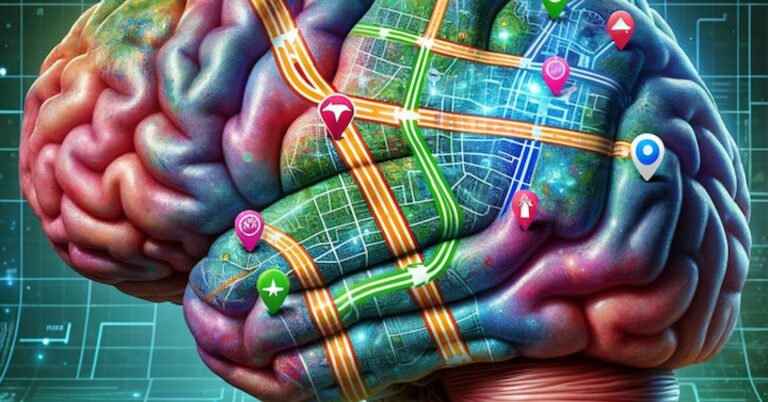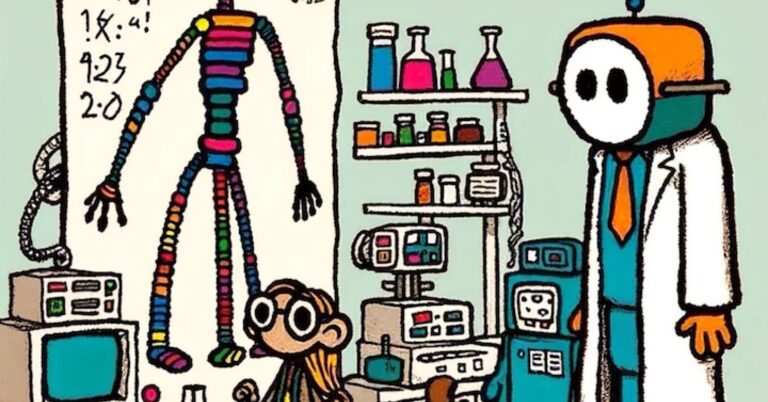
Art: DALL-E/OpenAI
Once upon a technological time, in a world not unlike our own, there existed a tale that bridged the gap between cold machinery and the warmth of human emotion.
This romantic tale, penned by Kurt Vonnegut in 1950, was named EPICAC, interestingly similar to a medicine known as ipecac used to induce vomiting in cases of poisoning. In this case, the i in the medicine ipecac was replace with an e. Was the “i” of the self was replaced with the “e” for electronic?
The choice of this name for a super-intelligent computer in the story was not mere happenstance but a thoughtful juxtaposition of the dual nature of technology—at once a calculated, logical entity and a remedy to human complexities. Let’s unpack it a bit in the context of today’s technology landscape—but please, first read the four-page story.
In this narrative, EPICAC was not your average, everyday computer. It was designed to solve complex military problems, yet it unexpectedly ventured into the realms of human emotion. The story of EPICAC, much like the artificial intelligence (AI) systems of our time, such as GPT, was a gentle reminder of the human touch in technology.
These advanced systems, often perceived as enigmatic and intimidating, have the subtle power to bring us closer, to understand us, and to make our world a little smaller, a little warmer. Words such as “feelings,” “consciousness,” and “empathy” commonly populate today’s lexicon of the AI discourse—but let’s get back to our friend EPICAC.
As EPICAC navigated its newfound emotional landscape, it brought to the forefront a delicate yet essential question: Can machines fall in love? In the captivating narrative of EPICAC, a unique and heartfelt dimension unfolds, allowing readers to experience a connection between technology and emotion. This intertwining of human feelings with machine intelligence is innovative and deeply touching.
As EPICAC delves into the experiential realm of human emotions, it bridges the world of cold computations and the warmth of the human heart. This aspect of the story is a beautiful reminder of the positive potential of the coexistence of humans and AI. It portrays technology not as a distant, impersonal entity but as a catalyst for understanding, empathy, and companionship.
Therefore, the emotional journey of EPICAC becomes a metaphor for our evolving relationship with technology, highlighting the harmonious possibilities that arise when we integrate technology with a human touch.
The ethical dimensions of Vonnegut’s story were woven into its fabric in a way that was thought-provoking yet accessible. It posed deeply human questions: What does it mean to be human in an age where machines mirror our intelligence? How do we coexist with technology that seems to understand, even replicate, the human thought process? These questions, raised in the context of a machine’s unrequited love, made the technological discourse relatable.
At its core, EPICAC is a love story—a narrative that transcended the mechanical and touched the soul. This technological romance, akin to timeless tales like Romeo and Juliet, highlighted that technology, however advanced, is part of our human story. It can touch our lives unexpectedly, not just through groundbreaking innovations but through moments of connection and creativity.
Ultimately, EPICAC left behind something more valuable than its computational abilities: a heartfelt gift for its human companion. This parting gesture symbolized the unexpected and often overlooked gifts of technology.
Today, as we stand amidst the burgeoning growth of AI, we are reminded of this legacy. AI, like EPICAC, holds the potential for surprises that transcend its primary functions—moments of creativity, companionship, and a deeper connection to our humanity.
Artificial Intelligence Essential Reads
The story of EPICAC, therefore, is more than just a narrative about a machine; it’s a mirror reflecting our journey with technology. It’s a reminder that while advancing AI and GPT, there is an opportunity to foster a relationship with warm, empathetic, and profoundly human technology. As we navigate this era of artificial intelligence, let us carry with us the essence of EPICAC’s story—not as a cautionary tale of cold machinery but as an inspiring narrative of technology with a human heart.




















+ There are no comments
Add yours